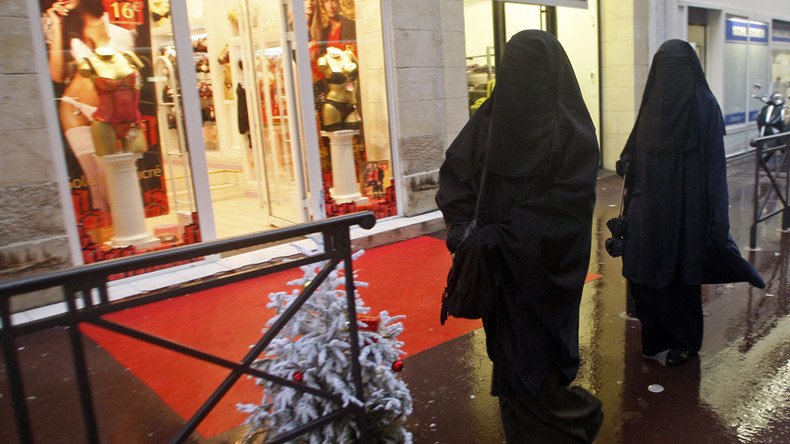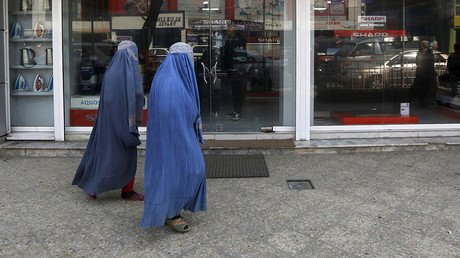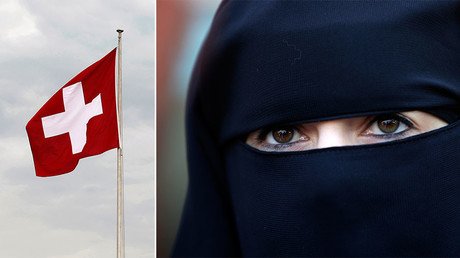Dutch lawmakers approve ban on Islamic full-face veils in public transport, schools, govt buildings

The lower house of the Dutch parliament has voted in favor of banning face veils and other face covering garments in certain public places such as schools, hospitals or government buildings, citing security concerns.
The bill envisages a ban on Islamic veils and robes such as the burqa and niqab but also applies to all face coverings, including ski masks, helmets and balaclavas. It does not cover such situations as wearing burqas on the streets but applies only to specific situations, in which face recognition and proper communication are “essential.”
Those defying the ban would face a fine amounting to up to €410 ($430). Wearing face covering garments for protection or during sports activities or festivals and cultural events is exempted from the ban.
"Face-covering clothing will in future not be accepted in education and healthcare institutions, government buildings and on public transport," the Dutch government said in a statement on the bill backed by the Interior Minister Ronald Plasterk, AFP reports.
The government said it had "tried to find a balance between people's freedom to wear the clothes they want and the importance of mutual and recognizable communication," adding that it “sees no need to impose the ban on all public spaces,” AFP reported.
"Everyone has the right to dress as he or she wishes," the government said in a statement announcing the law, as quoted by Reuters. "That freedom is limited only where it is essential for people to see each other, for example to ensure good service or security," it added.
"The bill does not have any religious background," the Dutch Prime Minister Mark Rutte said, responding to the criticism of the opponents of the legislation, who accused the government of making concessions to the anti-Islam sentiments in the view of the far-right Dutch anti-immigration Party for Freedom, led by Geert Wilders, leading the polls ahead of parliamentary elections in March.
The bill was adopted by a majority of 132 out of 150 lawmakers, including the ruling Liberal-Labor coalition. It must now get the approval of the Upper House of the Dutch parliament, the Senate, before coming into effect.
Meanwhile, the bill was criticized by the Dutch government’s advisory State Council body, which said that such an issue does not require specific legislation. Institutions such as schools or hospitals or public transport operators can introduce internal regulations prohibiting face-covering garments, it said.
The State Council’s position was supported by the social-liberal D66 party. Fatma Koser Kaya, an MP from D66, said last week that such practices already exist and the adoption of the bill is just a symbolic move.
According to the Dutch news media outlet NOS, only between 100 and 500 women in the Netherlands wear the burqa, most of them only occasionally.
The decision of the Dutch parliament has become just the latest in a series of similar measures taken by the authorities of various European countries. In late September, Bulgaria passed legislation prohibiting “wearing in public clothing that partially or completely covers the face.”
Earlier the same month, Switzerland’s lower house of parliament approved a draft bill, proposed by the right-wing Swiss People’s Party (SVP), paving a way for a nationwide burqa ban. In 2013, a Swiss region of Ticino also introduced a local regulation banning face veils in public areas, which came into force in 2016.
This summer, burkinis – full-body swimming suits worn by Muslim women on beaches – were outlawed in nearly 15 southeastern coastal towns in France, including Nice and the area of Cannes. The ban was subsequently suspended in some of the areas by France’s highest administrative court.
France was also the first European country to ban Islamic face veils in public places in 2010. The ban was supported by the European Court of Human Rights in 2014, which said that it does not violate religious freedoms. Belgium followed France’s suit in 2011 and introduced a similar ban.














